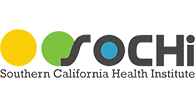Registered Nurses (RNs) are the beating heart of the healthcare system. Their skills and compassion contribute to the health and well-being of countless patients. But what exactly does an RN do each day, and what qualifications are required for this rewarding profession?
If you’re considering a career as an RN or looking to hire one, this guide will explain everything you need to know about the job description, responsibilities, and skills for success.
What is a Registered Nurse?
A Registered Nurse (RN) is a licensed healthcare professional responsible for delivering patient care, providing emotional support, and helping patients manage their health. RNs work in diverse environments, including hospitals, clinics, nursing homes, and schools, and their expertise extends to various specialties, such as pediatrics, geriatrics, and emergency care.
The core role of an RN is to collaborate with other healthcare professionals to ensure patients receive the best possible care.
General Responsibilities of a Registered Nurse
Being an RN is far from a routine desk job. The responsibilities often vary depending on the workplace and patient population. Here are the primary responsibilities RNs handle daily:
1. Patient Care
Patient care lies at the center of an RN’s duties. This entails tasks such as monitoring vital signs, administering medications, and assisting with basic needs like mobility and hygiene. RNs also educate patients and their families about managing medical conditions or recovery at home.
Example:
An RN in maternity care might teach new parents how to care for a newborn or provide breastfeeding guidance.
2. Assessment and Diagnosis
RNs conduct physical assessments, review medical histories, and interpret diagnostic test results to identify potential health concerns. While they don’t make formal medical diagnoses, RNs provide critical insights to physicians.
Key Skills:
Strong observational and analytical capabilities are essential to excel at this responsibility.
3. Administering Treatments
From wound care to IV insertion, RNs are often tasked with administering medical treatments. They play a hands-on role in ensuring treatments are provided safely and effectively.
4. Coordination of Care
Registered Nurses act as liaisons between patients, doctors, families, and other healthcare team members. This requires impeccable communication skills to relay information accurately and maintain seamless care coordination.
5. Advocacy
Sometimes, RNs advocate for their patients. Whether ensuring patients receive respectful care or tackling health disparities, they are a voice for those in charge.
Essential Skills Every Registered Nurse Should Have
The best RNs combine technical expertise with emotional intelligence. Below are the critical skills that RNs must cultivate to thrive in their role.
Clinical Knowledge
First and foremost, RNs need extensive medical knowledge to make informed decisions and provide quality care. This includes understanding anatomy, pharmacology, and disease management.
Communication Skills
RNs deal with doctors, patients, and family members daily. They must communicate clearly and effectively when explaining test results and treatment plans or providing emotional reassurance.
Attention to Detail
Mistakes in healthcare can have severe consequences, making accuracy and precision critical in medication administration, charting, and care planning.
Compassion and Patience
Nursing is as much an emotional job as it is a technical one. RNs often work with patients in pain or distress, requiring empathy, patience, and genuine care for others.
Time Management
With many responsibilities, RNs must effectively prioritize tasks and remain organized under pressure.
Work Environment and Schedules for RNs
RNs can work in various settings tailored to their skills and interests. While hospitals are the biggest employers, other opportunities exist in outpatient clinics, schools, military bases, home health agencies, and corporate wellness programs.
Work hours vary significantly. They may include early mornings, night shifts, weekends, and holidays, especially in hospital settings. However, positions in schools or offices often follow standard work hours.
Education and Licensing Requirements
Pursuing a career as an RN requires both education and licensure. Here’s a quick overview of what’s needed to become a Registered Nurse in the U.S.:
a. Education
Obtain a nursing degree through either:
- An Associate’s Degree in Nursing (ADN) – typically 2 years
- A Bachelor of Science in Nursing (BSN) – typically 4 years
Many employers prefer candidates with a BSN due to additional leadership and critical thinking training.
b. Pass the NCLEX-RN Exam
All U.S. states require RNs to pass the National Council Licensure Examination for Registered Nurses (NCLEX-RN) to obtain a license.
c. State Licensure
After passing the NCLEX-RN, nurses must apply for licensure in the state where they wish to work.
d. Continuing Education
Many states require RNs to complete continuing education courses to renew their licenses, ensuring they stay updated on the latest healthcare practices.
Career Growth Opportunities for RNs
The field of nursing offers a myriad of advancement options. Some RNs specialize or pursue additional certifications, while others advance to leadership or advanced practice roles.
Popular Specialties:
- Critical Care Nurse
- Pediatric Nurse
- Geriatric Nurse
- Oncology Nurse
- Psychiatric Nurse
Advanced Roles:
- Nurse Practitioner (NP)
- Nurse Educator
- Nurse Manager
- Clinical Nurse Specialist
Advanced roles often require further education, such as a Master’s of Science in Nursing (MSN) or a doctorate.
The Outlook for Registered Nursing
The demand for Registered Nurses (RNs) is projected to grow. Recent estimates from the Bureau of Labor Statistics forecast a 6% growth rate from 2021 to 2031. This demand stems from an aging population, increased focus on preventative care, and ongoing nurse shortages.
How to Pursue a Career in Nursing
If you’re inspired to pursue nursing after reading this, here are a few actionable steps to get started today:
- Research accredited nursing programs in your area.
- Volunteer at a hospital or clinic to gain firsthand experience.
- Connect with current RNs to seek advice on navigating the career path.
Whether you’re drawn to nursing for the variety, the challenge, or the chance to make a difference, this career is among the most impactful in today’s workforce.




